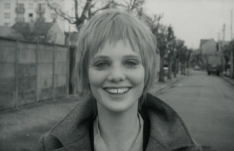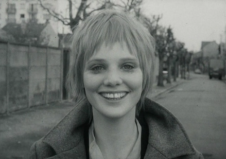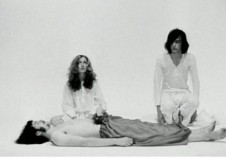The Zanzibar Films - Detruisez-vous + Acéphale

The Zanzibar Films
Aug 10 – 31
At Cinefamily, 611 N Fairfax Avenue, Los Angeles CA 90036
http://www.cinefamily.org/films/zanzibar/
(323) 655-2510
Co-presented by Cinefamily EXP, Veggie Cloud, La Collectionneuse, and Los Angeles Filmforum
In the storied tradition of French cinema, the New Wave may be the most famous break with tradition – but there were also the underseen, so-called Zanzibar films, named for a 1969 voyage to that then-Maoist country, and made in and around the student protests of May ‘68 by a long-haired, Parisian Warhol’s factory-esque cast of painters, models, artists, amateurs, dandies, and film techs – everyone but established filmmakers. The loose constellation of films they produced were unified by a mystical, hippie kind of avant-garde – one that rubbed up against, but didn’t define itself by, the political – instead the group’s greatest interventions were formal: long takes, drug-fueled improvisation, and purely counter-cultural amateurism. The filmmakers weren’t the only ones making a radical intervention in the world of French cinema – their patroness was too. French heiress Sylvina Boissonnas financed twelve of these films, apparently holding court at the Coupole restaurant, ready to sign checks for virtually anyone with an idea – making rather costly 35mm film stock available to a fascinating crowd. Still underseen today, the Zanzibar films, more than anything, are the products of a group that undertook filmmaking without traditional credentials, and without any intention to distribute, release, or capitalize on the work.
Special thanks to Jackie Raynal, Jacob Perlin, and Zanzibar scholar Sally Shafto.
Tickets $14 general, free for Cinefamily and Filmforum members.

Detruisez-vous (Destroy Yourselves)
Detruisez-vous (Destroy Yourselves)
Dir. Serge Bard, 1969, digital presentation, 70 min.
The first of the Zanzibar films, Détruisez-vous was also the debut work of Serge Bard, a student of ethnology at the University of Nanterre who had become disenchanted with the university system and abandoned his studies. Like Godard’s La Chinoise, which featured Anne Wiazemsky (herself a student at Nanterre at the time), the film is set in Nanterre where, just weeks before the student uprising in May 1968, Bard returned to shoot. Prefiguring the mounting militancy, Bard casts Alain Jouffroy as a professor and has him lecture in a nearly empty classroom on the necessity of revolution. —Sally Shafto

Acephale
Acephale
Dir. Patrick Deval, 1968, digital presentation, 65 min.
With its title taken from Georges Bataille’s journal Acéphale (literally, a headless man, but figuratively expressing the need to go beyond rational ways of thinking), Deval’s film is the most literary of the Zanzibar works. The film opens with an illustrative image: a head in the process of being shaved, in close up. This image is accompanied not by the sound of an electric razor but an electric saw, suggesting the need to achieve a tabula rasa by radical means. The story follows the adventures of a young man and his friends as they wander through a barely recognizable post–May 1968 Paris. In documenting the by-gone expressions and gestures of the ’68 generation in France, Acéphale becomes something of an anthropological film that reveals the rites and beliefs of the ideological novitiates. —Sally Shafto
